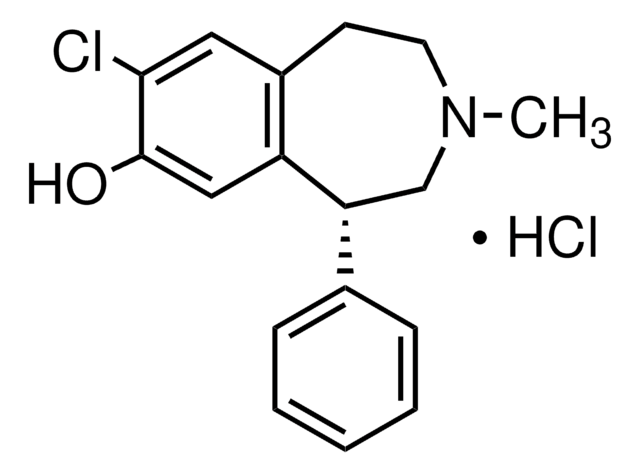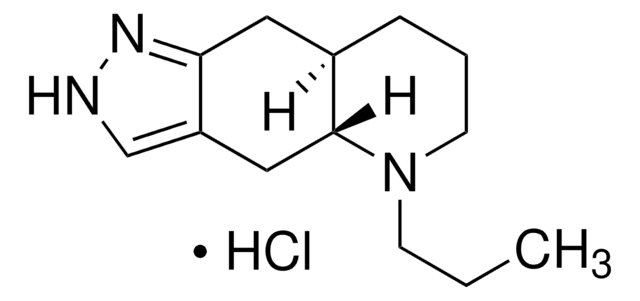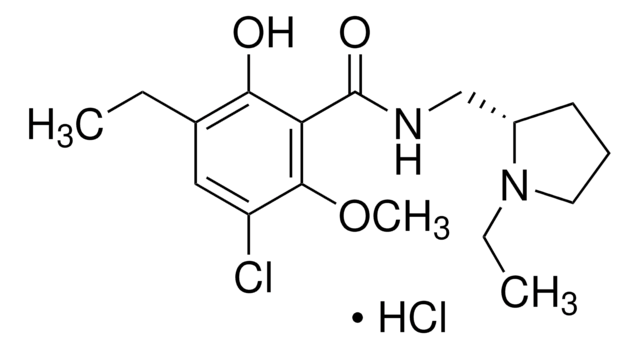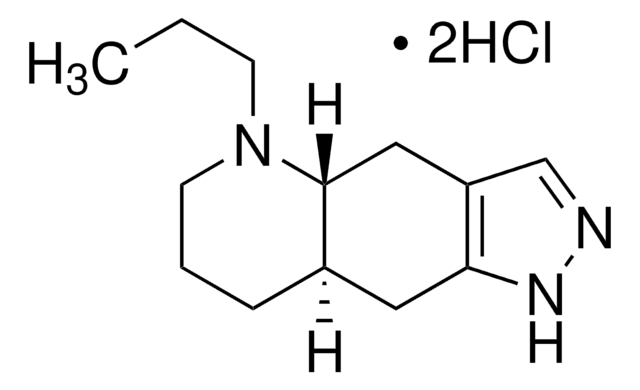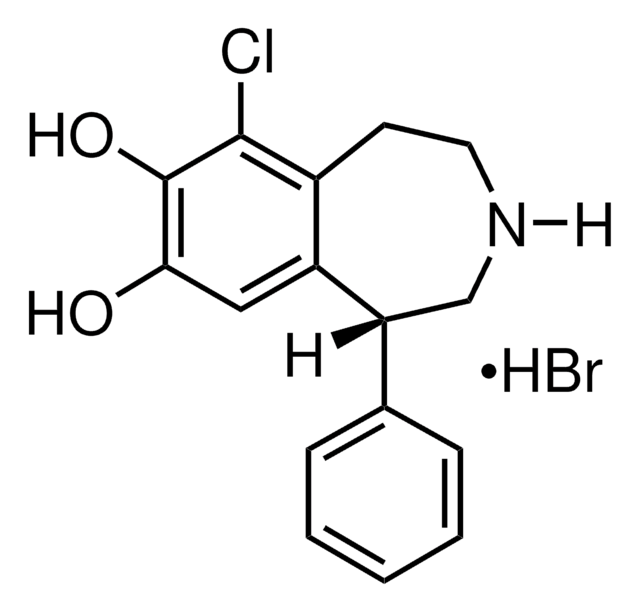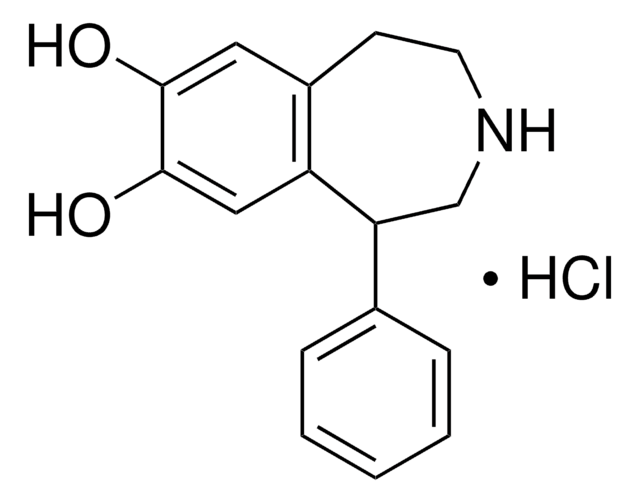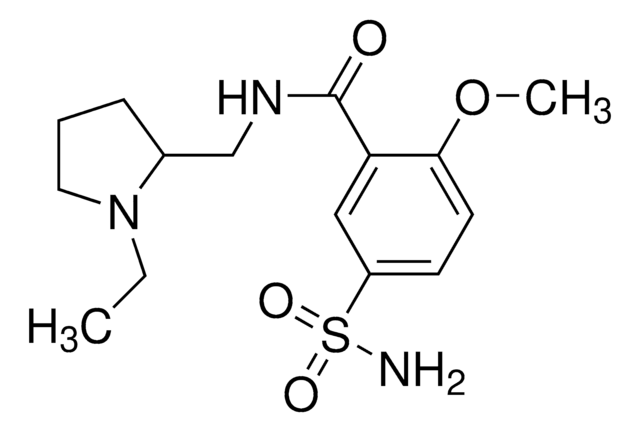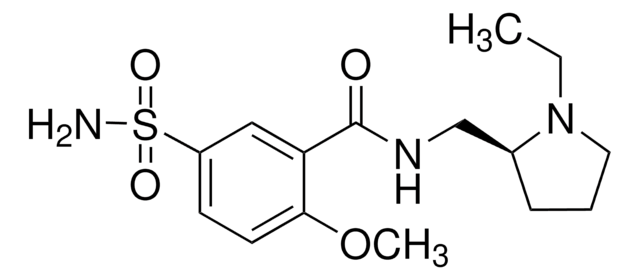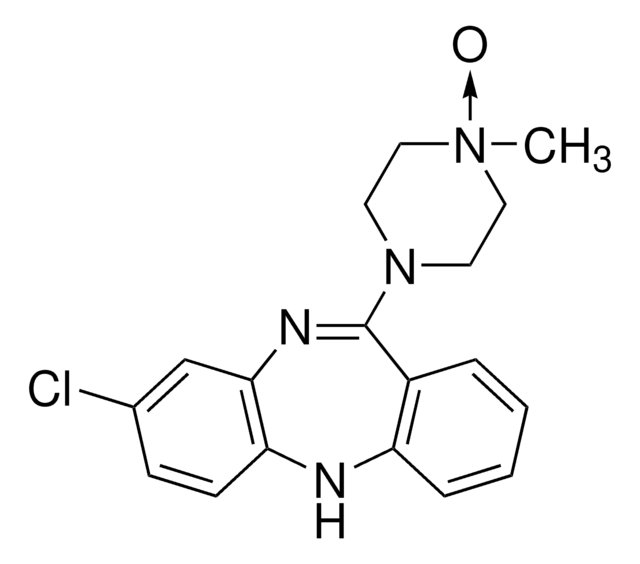R121
S(−)-Raclopride (+)-tartrate salt
>97%, solid
Synonyme(s) :
3,5-Dichloro-N-(1-ethylpyrrolidin-2-ylmethyl)-2-hydroxy-6-methoxybenzamide (+)-tartrate salt
About This Item
Produits recommandés
Pureté
>97%
Forme
solid
Couleur
white
Solubilité
H2O: 89 mg/mL
Chaîne SMILES
O[C@H]([C@@H](O)C(O)=O)C(O)=O.CCN1CCC[C@H]1CNC(=O)c2c(O)c(Cl)cc(Cl)c2OC
InChI
1S/C15H20Cl2N2O3.C4H6O6/c1-3-19-6-4-5-9(19)8-18-15(21)12-13(20)10(16)7-11(17)14(12)22-2;5-1(3(7)8)2(6)4(9)10/h7,9,20H,3-6,8H2,1-2H3,(H,18,21);1-2,5-6H,(H,7,8)(H,9,10)/t9-;1-,2-/m01/s1
Clé InChI
QULBVRZTKPQGCR-NDAAPVSOSA-N
Informations sur le gène
human ... DRD2(1813)
Application
- to study the role of the D2 receptor in mediating ventrolateral PAG (vlPAG)/dorsal raphe dopaminergic antinociceptive effect in animals
- in pharmacological and behavioral studies performed with Thap1 null mice
- to determine the relationship between Ca2+ transients and dopamine neuron activity in rats
Actions biochimiques/physiologiques
Conditionnement
Attention
Code de la classe de stockage
11 - Combustible Solids
Classe de danger pour l'eau (WGK)
WGK 3
Point d'éclair (°F)
Not applicable
Point d'éclair (°C)
Not applicable
Équipement de protection individuelle
Eyeshields, Gloves, type N95 (US)
Certificats d'analyse (COA)
Recherchez un Certificats d'analyse (COA) en saisissant le numéro de lot du produit. Les numéros de lot figurent sur l'étiquette du produit après les mots "Lot" ou "Batch".
Déjà en possession de ce produit ?
Retrouvez la documentation relative aux produits que vous avez récemment achetés dans la Bibliothèque de documents.
Les clients ont également consulté
Notre équipe de scientifiques dispose d'une expérience dans tous les secteurs de la recherche, notamment en sciences de la vie, science des matériaux, synthèse chimique, chromatographie, analyse et dans de nombreux autres domaines..
Contacter notre Service technique